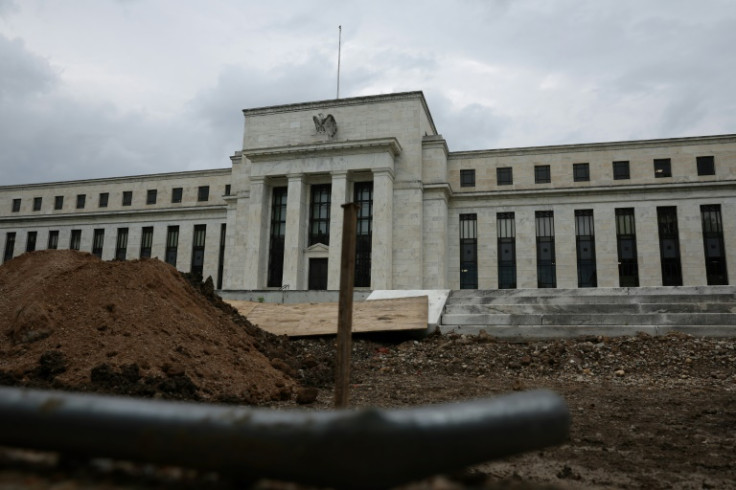Rising Interest Rates: Who Benefits, Who Gets Hurt, Who Could Go Under
Rising interest rates have put an end to the era of near-free money. They have made money costly again. And that changes the economic life for individuals, businesses, and the government. Some benefit, some get hurt, and some would end in bankruptcy.
Who Benefits?
The quick answer is "nobody." Interest rates have been rising for a simple reason: to partially compensate for the loss of value of money due to inflation.
Still, Eric Swanson, Professor of economics at the University of California, Irvine, thinks that the primary beneficiaries are people living off a fixed income from savings, like many retirees.
"Higher CD rates and saving account interest rates increase the monthly returns they will earn on their savings," he told International Business Times in an email.
Retirees benefit from higher interest rates in another way: higher social security checks, which rise in line with inflation.
Still, these benefits should be interpreted with caution. They are nominal rather than real income increases. They help people maintain their purchasing power rather than adding to it.
Patrick Scheideler, Co-Founder at MultiLynq, a trading platform, thinks of another group of primary beneficiaries, banks. They benefit from the rising of the "spread," the difference between the interest they pay to borrow money from depositors and the interest they earn by lending money to the government, businesses, and individuals.
But bank benefits may not be that big this time due to the flattening and inverting of the yield curve, meaning that long-term interest rates—the rates at which banks lend money—are equal to or even lower than the short-term rates—the rates at which banks borrow money.
Still, there are long-term borrowers who benefit from higher interest rates, like homeowners, who took mortgages a few years ago when inflation and interest rates were low.
And there's the federal government and the state and municipal governments, which issued long-term debt at low coupons a few years ago.
Who Gets Hurt?
Professor Swanson sees three main groups who get hurt. The first group is individual borrowers, people planning a significant purchase soon that needs financing, like buying a car or a house.
For instance, 30yr mortgage rates have risen from as low as 2.75% nine months ago to 6.25% recently. As a result, "the monthly payment on a 400k mortgage has increased from approximately $1,650 to $2,450 ($1,650 monthly payment now equates to approximately a 270k mortgage), explained Scheideler.
The second group consists of businesses and workers in cyclical industries sensitive to interest rates like construction and manufacturing. The third group is investors who already own an extensive portfolio of fixed income securities with long duration, like 30year Treasury bonds.
"These longer duration holdings have seen 15%+ declines this year and leave investors with bonds with low yields," explained Salo Aizenberg, owner of Downtown Investment Advisory.
And there are stock investors who usually see their value falling as interest rates rise.
Who Could End in Bankruptcy?
People and businesses who suffer significant losses and cannot cover their regular expenses, said Professor Swanson, like businesses in the construction sector, home, and automobile manufacturing.
"Financial institutions could also be hit hard," he added. "The weakest among these businesses would be the most likely to go under."
Scheideler adds another group, leveraged crypto investors.
"Crypto has not proven to be an effective inflation hedge, but rather has shown to be interest rate sensitive," he says. "Leveraged crypto holders face the possibility/reality of increased borrowing costs against an asset falling in price, both of which could accelerate in opposite directions."
But Glenn Havlicek, co-founder of GLMX trading platform, thinks that nobody "goes under" just as a direct result of higher rates alone. Instead, other factors come to play, like taking cheap money for granted and assuming excessive risks.
"Those whose financial viability is challenged by higher rates are those who took for granted and relied upon highly accessible and very cheap money and expected it to persist for the indefinite future," he said.

© Copyright IBTimes 2025. All rights reserved.






















